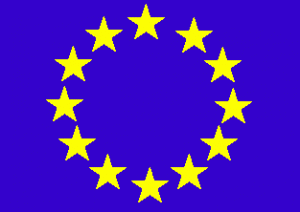Finansiranje projekata izvođenja ogleda intezivnog gajenja poljoprivrednih kultura
POKRAJINSKI SEKRETARIJAT ZA POLJOPRIVREDU, VODOPRIVREDU I ŠUMARSTVO
Konkurs za dodelu podsticajnih sredstava za finansiranje projekata izvođenja ogleda intezivnog gajenja poljoprivrednih kultura u 2011.godini
 Na osnovu člana 7. Pokrajinske skupštinske odluke o budžetu Autonomne Pokrajine Vojvodine za 2011. godinu, sa razdela 23. Stručna služba za realizaciju programa privrednog razvoja Autonomne Pokrajine Vojvodine, aktivnost 04. Fond za promociju izvoza poljoprivrednih proizvoda-APF, finansiraće se projekati izvođenja ogleda intezivnog gajenja poljoprivrednih kultura u 2011. godini u ukupnom iznosu do 5.000.000,00 dinara.
Na osnovu člana 7. Pokrajinske skupštinske odluke o budžetu Autonomne Pokrajine Vojvodine za 2011. godinu, sa razdela 23. Stručna služba za realizaciju programa privrednog razvoja Autonomne Pokrajine Vojvodine, aktivnost 04. Fond za promociju izvoza poljoprivrednih proizvoda-APF, finansiraće se projekati izvođenja ogleda intezivnog gajenja poljoprivrednih kultura u 2011. godini u ukupnom iznosu do 5.000.000,00 dinara.
Pravo učešća na konkursu imaju:
1. Privredna društva – Poljoprivredne stručne službe sa teritorije AP Vojvodine
Ovim konkursom finansiraće se projekti:
• Utvrđivanja najracionalnijeg, optimalnog sistema zaštite protiv štetnih organizama u voćnim zasadima;
• Utvrđivanja optimalnih rokova tretiranja u borbi protiv štetočina i prouzrokovača bolesti u ratarskim usevima i
• Utvrđivanja optimalnih rokova tretiranja u borbi protiv štetočina i prouzrokovača bolesti u povrtarskim usevima.
Potrebna dokumentacija:
1. Prijava na konkurs;
2. Projekat ( treba da sadrži: naziv, detaljan opis projekta, biljnu vrstu, testirani štetni organizam, način postavljanja ogleda, način ocene i merenja rezultata, način predstavljanja rezultata i strukturu troškova projekta);
3. Mišljenje na projekat od Pokrajinskog centra prognozno izveštajne službe AP Vojvodine o opravdanosti projekta (da je projekat originalan, da se oslanja na biološke karakteristike štetih organizama utvrđenih u sistemu prognoze i izveštavanja AP Vojvodine);
4. Fotokopija Potvrde o poreskom identifikacionom broju;
5. Fotokopija kartona deponovnih potpisa;
6. Fotokopija rešenja o registraciji u Agenciji za privredne registre.
Rok za realizaciju projekta 15.10.2012. godine.
Prava i obaveze između Korisnika sredstava, Pokrajinskog sekretarijata za poljoprivredu, vodoprivredu i šumarstvo i Stručne službe za realizaciju programa privrednog razvoja Autonomne Pokrajine Vojvodine, regulisaće se ugovorom.
Razmatranje prispelih prijava vršiće komisija koju obrazuje Stručna služba za realizaciju programa privrednog razvoja Autonomne Pokrajine Vojvodine na predlog Pokrajinskog sekretarijata za poljoprivredu, vodoprivredu i šumarstvo.
Kriterijumi za ocenu prijava su značaj projekta i upotrebna vrednost rezultata dobijenih iz projekta.
Način podnošenja prijave na konkurs:
Konkurs se objavljuje u „Službenom listu AP Vojvodine“, dnevnom listu „Dnevnik“ i na internet sajtu Pokrajinskog sekretarijata za poljoprivredu, vodoprivredu i šumarstvo www.psp.vojvodina.gov.rs
Prijava za konkurs podnosi se na obrascu koji se može preuzeti u Pokrajinskom sekretarijatu za poljoprivredu, vodoprivredu i šumarstvo, I sprat kancelarija 46a ili sa sajta Sekretarijata www.psp.vojvodina.gov.rs
Prijava na konkurs sa pripadajućom dokumentacijom dostavlja se poštom ili lično preko pisarnice pokrajinskih organa u zatvorenoj koverti, od dana objavljivanja u dnevnom listu „Dnevnik“, zaključno sa 31.10.2011. godine, na adresu: Stručna služba za realizaciju programa privrednog razvoja Autonomne Pokrajine Vojvodine, Novi Sad, Bulevar Mihajla Pupina br.16 sa naznakom „Za konkurs“- program „Fond za promociju izvoza poljoprivrednih proizvoda – APF“, ne otvaraj. Na poleđini koverte obavezno navesti naziv, adresu i broj telefona i faksa podnosioca prijave, kao i ime osobe za kontakt.
Neblagovremene i nekompletne prijave kao i prijave koje nisu overene pečatom i potpisom ovlašćenog lica, neće se razmatrati. Dokumentacija podneta na konkurs se ne vraća.
Dodatne informacije mogu se dobiti u Pokrajinskom sekretarijatu za poljoprivredu, vodoprivredu i šumarstvo na telefon: 021/487-4416.
 • Naslov programa: PROGRESS
• Naslov programa: PROGRESS Smart Kolektiv i Forum poslovnih lidera Srbije pozivaju mlade preduzetnike i preduzetnice sa teritorije Srbije da se prijave za podršku iskusnih menadžera– biznis mentora koji će im volonterski pomoći da razviju poslovanje i preduzetnički potencijal radeći sa njima tokom godinu dana, dva do četiri sata mesečno.
Smart Kolektiv i Forum poslovnih lidera Srbije pozivaju mlade preduzetnike i preduzetnice sa teritorije Srbije da se prijave za podršku iskusnih menadžera– biznis mentora koji će im volonterski pomoći da razviju poslovanje i preduzetnički potencijal radeći sa njima tokom godinu dana, dva do četiri sata mesečno. Sajam investicija okupiće oko 50 učesnika, od čega 41 opštinu i grad, koji će predstaviti oko stotinu investicionih projekata. Mnogobrojni direktni učesnici i gosti iz inostranstva na štandovima pojedinih gradova i opština, Sajmu investicija daju ozbiljniji međunarodni karakter. Iz Republike Srpske biće predstavljeno pet opština – Banja Luka, Gradiška, Kozarska Dubica, Mrkonjić Grad i Prijedor. Rumunija će se predstaviti sa dva grada – Deda i Đulvez.
Sajam investicija okupiće oko 50 učesnika, od čega 41 opštinu i grad, koji će predstaviti oko stotinu investicionih projekata. Mnogobrojni direktni učesnici i gosti iz inostranstva na štandovima pojedinih gradova i opština, Sajmu investicija daju ozbiljniji međunarodni karakter. Iz Republike Srpske biće predstavljeno pet opština – Banja Luka, Gradiška, Kozarska Dubica, Mrkonjić Grad i Prijedor. Rumunija će se predstaviti sa dva grada – Deda i Đulvez. Događaj organizuje Udruženje novinara za poljoprivredu „Agropress“, u saradnji sa USAID Agrobiznis projektom. Generalni sponzor događaja je ProCredit banka, a sponozor „Victoria Logistic“. Događaj se održava pod pokroviteljstvom Ministarstva poljoprivrede, trgovine, šumarstva i vodoprivrede i Privredne komore Srbije.
Događaj organizuje Udruženje novinara za poljoprivredu „Agropress“, u saradnji sa USAID Agrobiznis projektom. Generalni sponzor događaja je ProCredit banka, a sponozor „Victoria Logistic“. Događaj se održava pod pokroviteljstvom Ministarstva poljoprivrede, trgovine, šumarstva i vodoprivrede i Privredne komore Srbije.